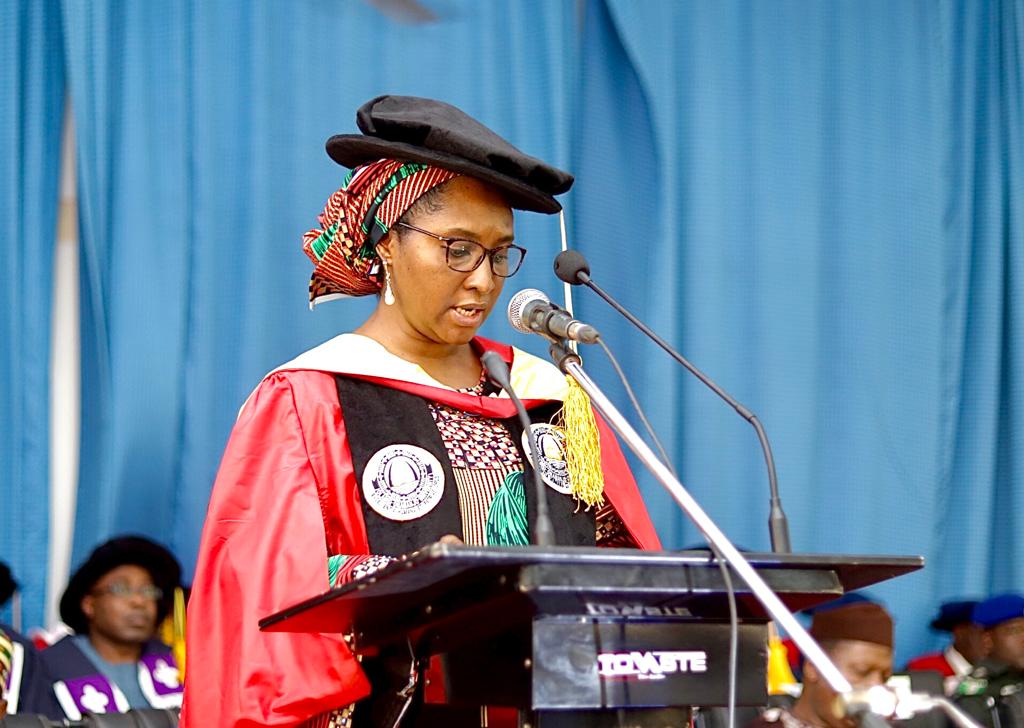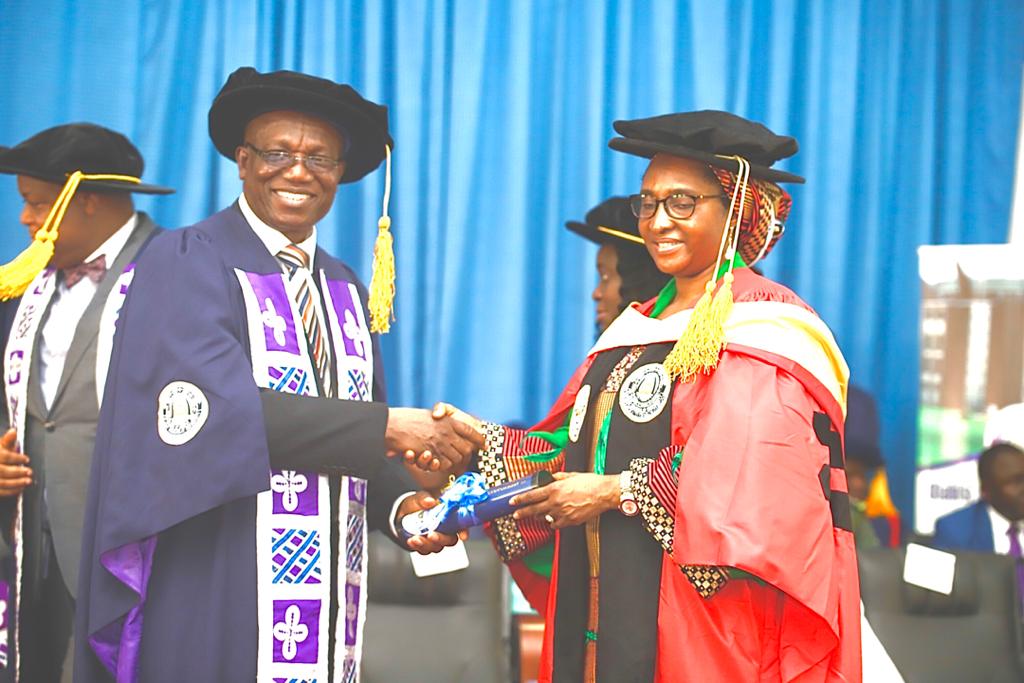
The Olabisi Onabanjo University, Ago-Iwoye, Ogun State, last weekend honoured the Honourable Minister of Finance, Budget and National Planning, Zainab Ahmed, among others, with an Honorary Doctorate Degree, D.Sc (Honoris Causa).
In her acceptance speech, the Honourable Minister expressed pleasure to have been in the midst of renowned scholars responsible for shaping the future of Nigeria by imparting the younger generation with the requisite industrial and economic skills and k knowledge to foster economic growth and development.
Appreciating the opportunity to speak on behalf of other recipients such as His Royal Majesty Oba Kehinde Gbadewole Adeboye Olugbenle, the Olu of Ilara and Paramount ruler of Yewa land, and Major General Sansadeen Adebanjo (rtd.), the Honourable Minister noted that the task of service to the nation is a collective and an inevitable responsibility, and that any opportunity that anyone has to participate in improving the public service should be worth cherishing.
Expressing her pride for being a product and an Alumna of the institution, she stated: “I am proud to be associated with the relentless efforts of the institution in producing some of the best brains that have made significant contributions to the socio-economic and political development of our nation. The likes of Uchechukwu Ogah, Minister of State for Mines and Steel Development; Ibrahim Bio, former Minister of Transportation; Boluwaji Kunlere, former Senator; Segun Awolowo Jr., Chief Executive Officer of Nigerian Export Promotion Council (NEPC), and a thousand others.”
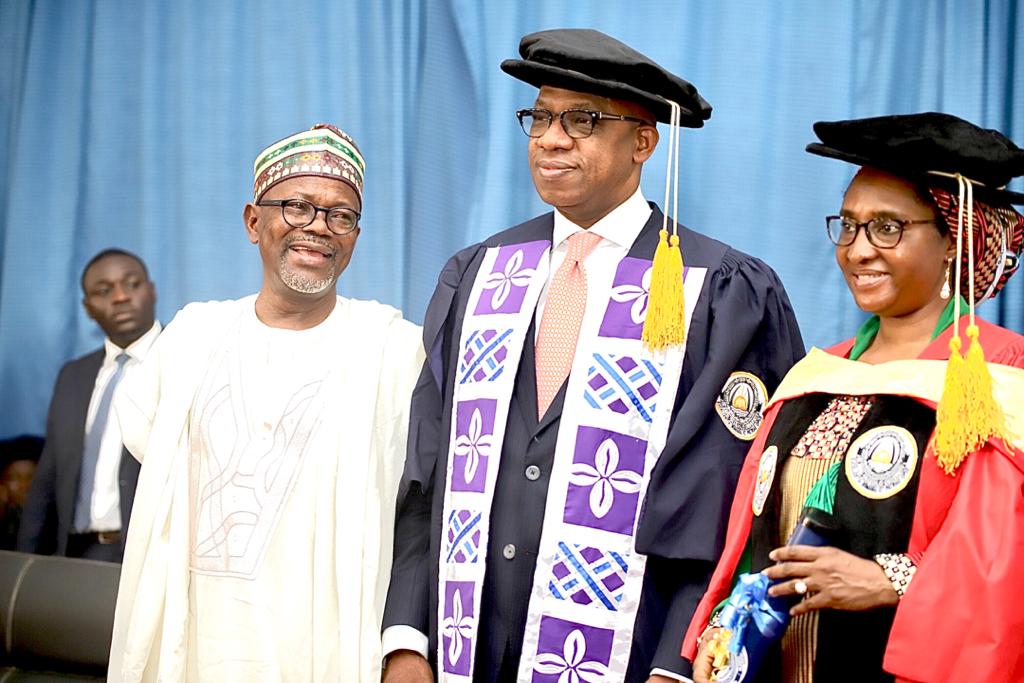
“You would recall that the Nigerian economy went into recession in 2016. In response, the President Muhammadu Buhari administration, through the erstwhile Ministry of Budget and National Planning in which I was Minister of State, developed the Economic recovery and Growth Plan (ERGP) to run 2017-2020, as a medium term economic development plan. The main focus of the plan was to get the economy back on the path of inclusive and sustainable growth. The ERGP was also designed to diversify the economy, restore economic growth, create jobs, empower the youths, develop human capital and infrastructure; and improve ease of doing business, etc. One key result of this timely response was that we exited the recession by 2017, a very rare feat and the economy has been on a steady growth right up to the end of the President’s first term in Office.,” she said.
Highlighting the priorities that have been identified at the beginning of the second term of this administration, Ahmed stated: “The priorities are to build a thriving and sustainable economy; enlarge agriculture output for food security and exports; attain energy sufficiency in power and petroleum products; expand transport and other infrastructure development; expand business growth, entrepreneurship and industrialisation; expand access to quality education, affordable healthcare and productivity of Nigerians; enhance social inclusion and reduce poverty; build systems to fight corruption, improve governance and create social cohesion; and improve security for all.”
According to Ahmed, some of the early results of the ongoing reforms and initiatives include the fastest passage of the annual budget thereby returning the country to January-December fiscal year, “something we have not experienced in over 20 years. Also, it is the signing of the Finance Act of 2020, a major catalyst towards fiscal reform.”
Among the many challenges being addressed by the Ministry of Finance, Budget and National Planning, according to her, is the perennial revenue shortfalls. “We have developed the strategic revenue growth initiative (SRGI) which has three thematic areas such as: Achieve sustainability in revenue generation; Identify new and enhance the enforcement of the existing revenue streams; and Achieve cohesion in the revenue ecosystem (people and tools),” Ahmed also said. The overall aim and aspiration of the SRGI is to improve government revenue generation, as it is expected that the initiative will help government to increase its revenues by exploring new revenue streams, especially from non-oil sources. It is meant to help the reduce cost of governance and block leakages.
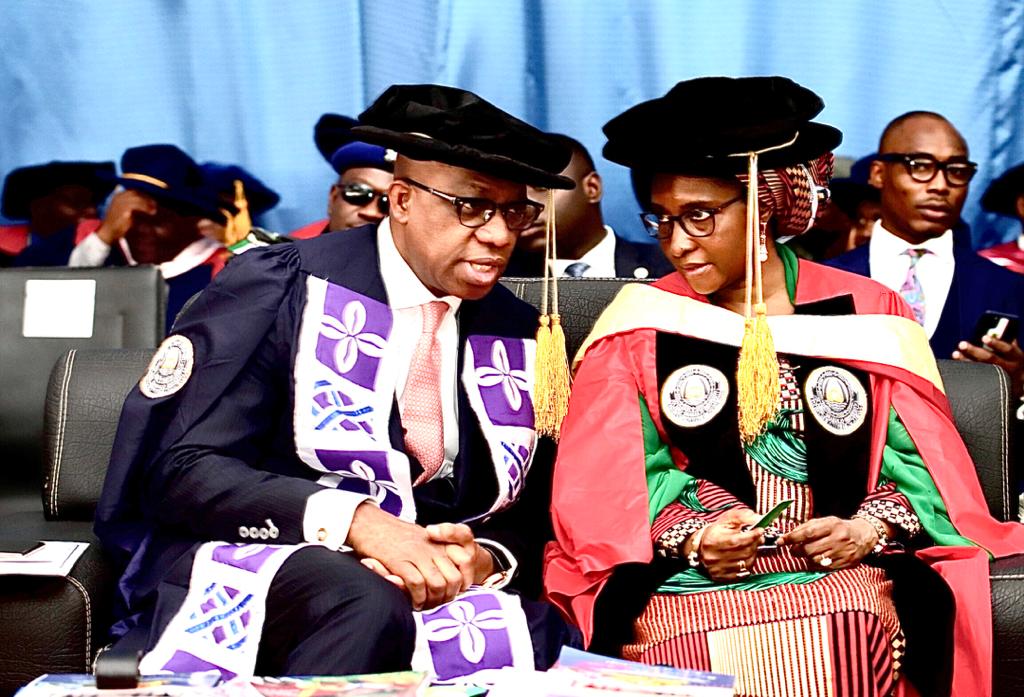
The Honourable Minister also noted that the administration has done well in the fight against corruption by introducing a number of fiscal reforms such as full implementation of treasury single account (TSA), integrated payroll and personnel information scheme (IPPIS), bank verification number (BVN) and whistle blower schemes among others. “To boost Nigeria’s ranking in the area of transparency and good governance, the Buhari administration signed onto the global open government partnership (OGP) and in December 2019 launched the transparency portal. Through this initiative, ministries departments, and agencies (MDAs) are expected to publish their daily transactions for the public to see. We are beginning to see improvement in our fiscal rating as a result of these deliberate actions by the government.”
Without being unmindful of some of the economic challenges still confronting the nation, as they are not peculiar to Nigeria, she stressed that “we are not resting on our oars, we are engaging all stakeholders collectively on better measures to adopt in increasing the prosperity of our dear country. We implore you to support this administration in its efforts to bring about an inclusive and sustainable economy.”
At the event, Prince Dapo Abiodun, the Governor of Ogun State, “noted with joy” the stride made by the university especially on the NUC accreditation visits to the university.
On the challenges of accreditation facing the only outstanding course, architecture, are being addressed. We are currently constructing six studios and a departmental building”.
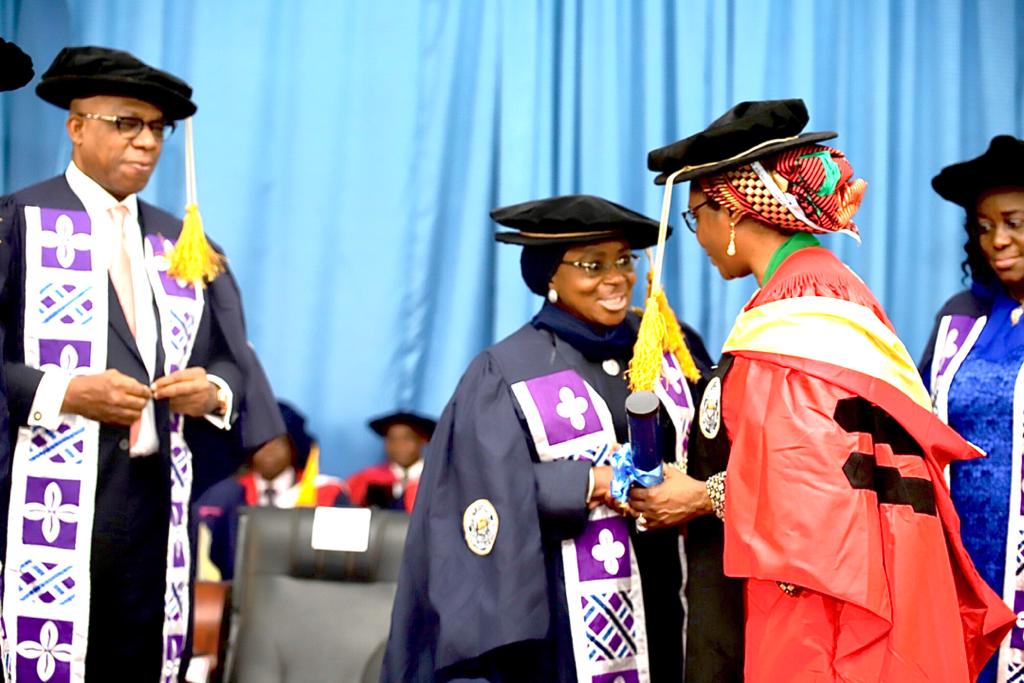
The Governor was at hand to inaugurate and commission two tertiary education trust fund (TETFUND) assisted projects, which are the new Senate building and a 300-capacity information and communication technology (ICT) building assisted by the Honourable Minister.


